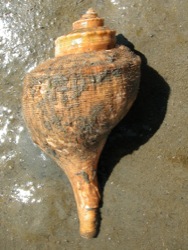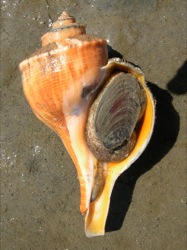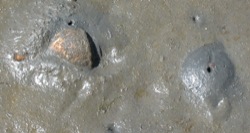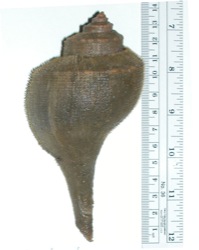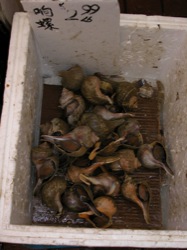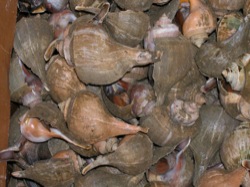Busycotypus canaliculatus Key Image
Same specimen as in the previous image. Note the large aperture tapering downward to a long, open canal, and the brown operculum that closes the aperture.
Return to Top
Busycotypus canaliculatus Image 1
Busycotypus canaliculatus from San Francisco Bay. Note the conical spire; the sloped top of each whorl with a rounded outer ridge; and the thin tissue (called the periostracum) and network of stiff hairs that cover part of the shell.
Return to Top
Busycotypus canaliculatus (Linnaeus, 1758)
CHANNELED WHELK
As the largest snail in San Francisco Bay, and
the only species in its family on the Pacific Coast, Busycotypus canaliculatus
is easily recognized. San Francisco Bay specimens range up to 185 mm in length,
while no other snail in the Bay gets much above 35 mm long. The shell has
a conical spire and 5-6 whorls (each whorl is one complete turn of the spiral
shell).
Return to Top
Ficopomatus enigmaticus Image 11
A species of
Hydroides, another genus of tube-building worms, that could be confused with
Ficopomatus. Note the absence of brown staining or flanges on the tube.
Return to Top
Ficopomatus enigmaticus Image 10
A
Ficopomatus enigmaticus reef in the Mar Chiquita Coastal Lagoon, with others in the distance.
Return to Top
Ficopomatus enigmaticus Image 9
Aerial photograph of hundreds of
Ficopomatus enigmaticus reefs in the Mar Chiquita Coastal Lagoon in Argentina
Return to Top
Ficopomatus enigmaticus Image 8
Closeup of the operculum from the previous image. Debris fouling the top surface of the operculum makes the spines difficult to see.
Return to Top
Ficopomatus enigmaticus Image 7
Closeup of the head of the same worm, removed from the broken tube. The operculum is at the top of the image.
Return to Top
Ficopomatus enigmaticus Image 6
Closeup of a worm within a broken section of tube, from San Francisco Bay
Return to Top
Ficopomatus enigmaticus Image 5
Another closeup of
Ficopomatus enigmaticus tubes.
Return to Top

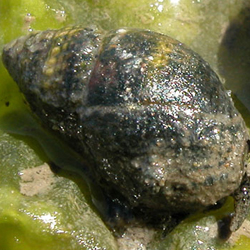 Ilyanassa obsoleta
Ilyanassa obsoleta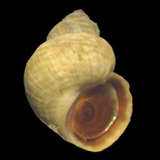 Littorina saxatilis
Littorina saxatilis 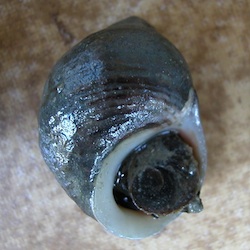 Littorina littorea
Littorina littorea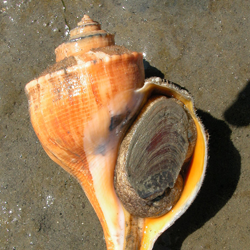 Busycotypus canaliculatus
Busycotypus canaliculatus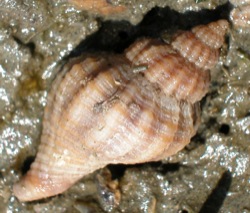 Urosalpinx cinerea
Urosalpinx cinerea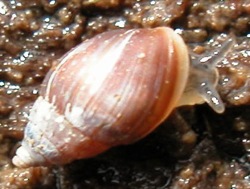 Myosotella myosotis
Myosotella myosotis 